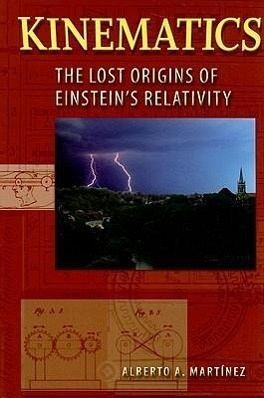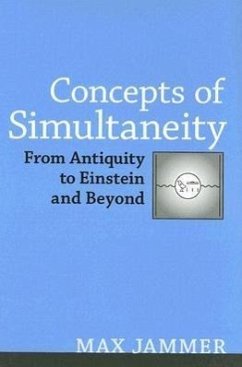Nicht lieferbar

Kinematics
The Lost Origins of Einstein's Relativity
Versandkostenfrei!
Nicht lieferbar
The field of kinematics--the science of motion--has long been neglected and misrepresented. Despite rich traditions rooted in ancient times, modern physical kinematics never became a professional discipline. No journals or academic societies were founded to support its development and study and most physicists took the science of motion for granted. Yet some came to doubt its very principles, even denouncing its basic language--coordinate algebra--as an impediment to scientific progress. In this unique and comprehensive history of kinematics, Alberto A. Mart?nez rescues the forgotten roots of...
The field of kinematics--the science of motion--has long been neglected and misrepresented. Despite rich traditions rooted in ancient times, modern physical kinematics never became a professional discipline. No journals or academic societies were founded to support its development and study and most physicists took the science of motion for granted. Yet some came to doubt its very principles, even denouncing its basic language--coordinate algebra--as an impediment to scientific progress. In this unique and comprehensive history of kinematics, Alberto A. Mart?nez rescues the forgotten roots of this field that led to Einstein's theory of special relativity. Using clear explanations and accessible language, he analyzes the development of kinematics; explains how mathematics, engineering, philosophy, and psychology pulled it in divergent directions; and discusses why modern kinematics inherited old and unresolved ambiguities. All students of physics and general science study basic kinematics. Mart?nez draws from an unparalleled wealth of sources to demonstrate why it is essential to the study and evolution of physics today.










